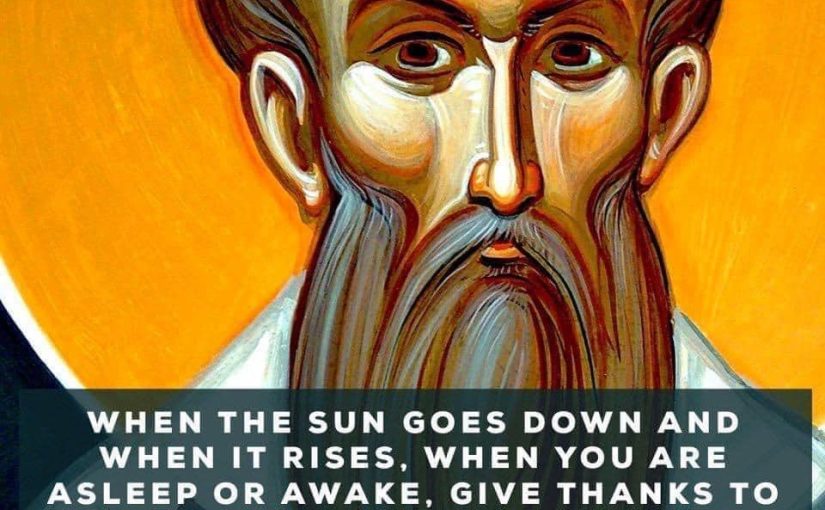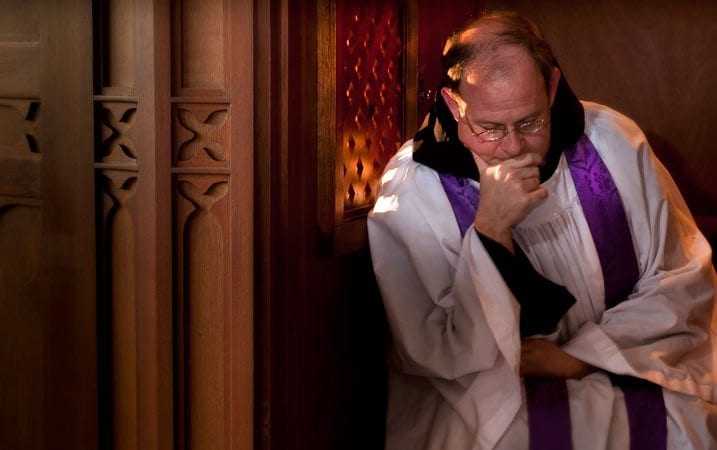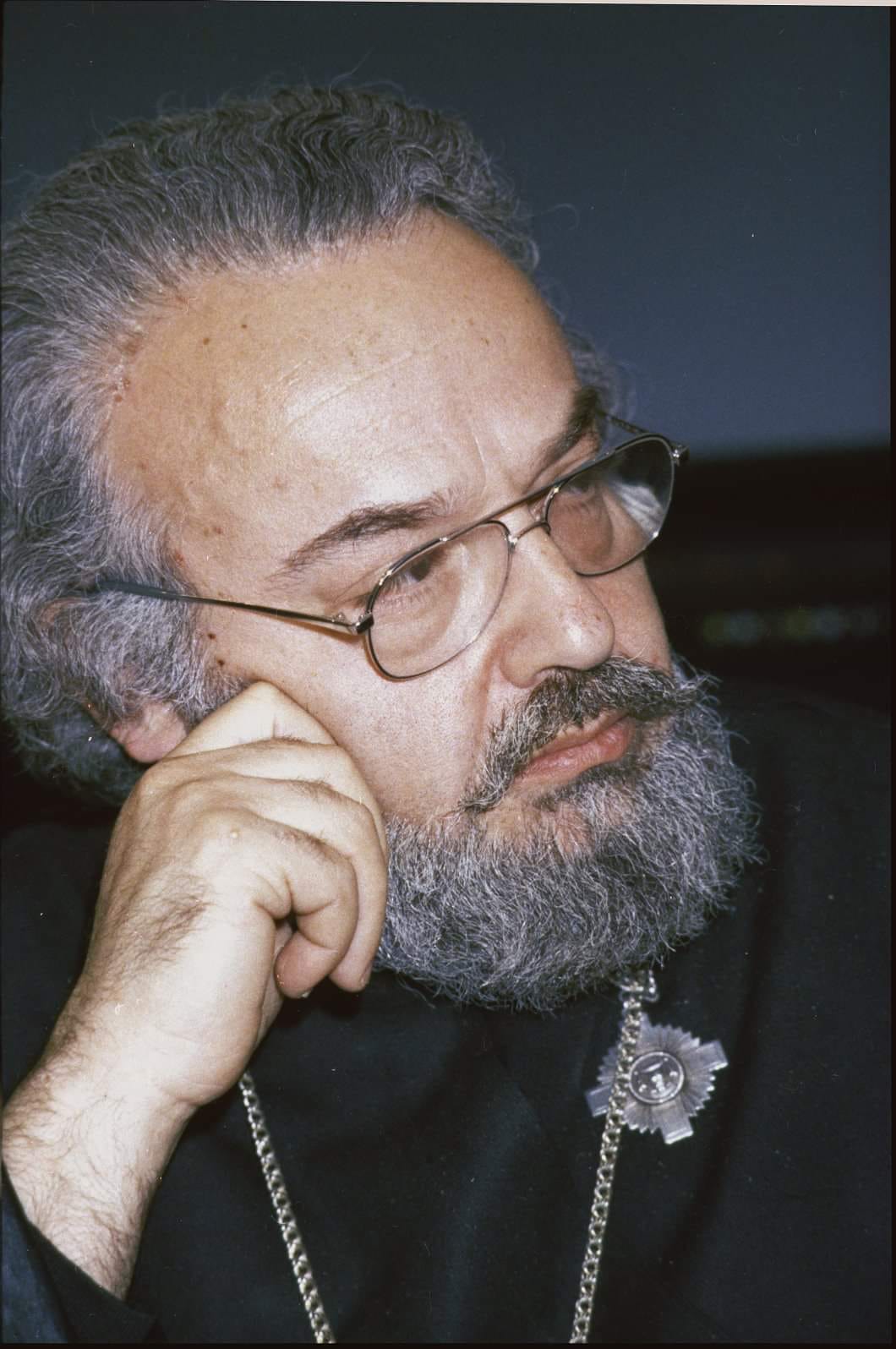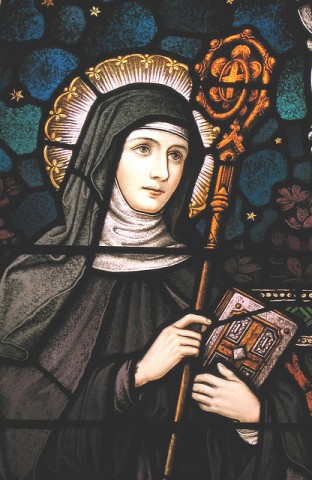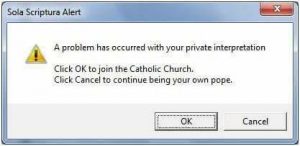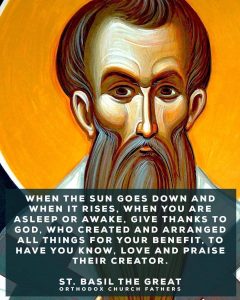 Thanksgiving to God is daily, both during the eucharistic celebration in the Church and in the sacrifice of love we offer upon the altar of every human heart, in every human temple. In fact, the Fathers unanimously say that it is the remedy that reverses the trajectory of loss because it reorients us to the norm of our human existence. (SM)
Thanksgiving to God is daily, both during the eucharistic celebration in the Church and in the sacrifice of love we offer upon the altar of every human heart, in every human temple. In fact, the Fathers unanimously say that it is the remedy that reverses the trajectory of loss because it reorients us to the norm of our human existence. (SM)
Category: Theology
Priest faculties to absolve the sin of abortion
Because someone asked, What are the current faculties of priests in regard to absolving the sin of abortion and corresponding censures? The canonical reference included here.
“Given this need, lest any obstacle arise between the request for reconciliation and God’s forgiveness, I henceforth grant to all priests, in virtue of their ministry, the faculty to absolve those who have committed the sin of procured abortion. The provision I had made in this regard, limited to the duration of the Extraordinary Holy Year, is hereby extended, notwithstanding anything to the contrary. I wish to restate as firmly as I can that abortion is a grave sin, since it puts an end to an innocent life. In the same way, however, I can and must state that there is no sin that God’s mercy cannot reach and wipe away when it finds a repentant heart seeking to be reconciled with the Father. May every priest, therefore, be a guide, support and comfort to penitents on this journey of special reconciliation.”
Pope Francis, apostolic letter Misericordia et misera 12, November 20, 2016, AAS 108 [2016] 1319–1320; translation from this site.
Picture: Fr Bede Price, priest of the Diocese of Nashvillee
St Basil the Great at Pentecost
 We are fast approaching the great feast of Pentecost. A saint to attend to is St. Basil the Great.
We are fast approaching the great feast of Pentecost. A saint to attend to is St. Basil the Great.
Basil’s work is understood as a key and definitive statement on the divinity of the Holy Spirit in the early Church. A monumental intellectual work on the Holy Spirit won’t appear for many centuries later with Cardinal Ives Congar’s 3 volume work, I Believe in the Holy Spirit (1982).
As one commentator writes, “Unlike the previous approach to defending Christ’s divinity—which had relied on language outside of Scripture since Arian heretics had an explanation for every verse cited against them—Basil based his case for the divinity of the Holy Spirit on an extraordinarily close reading of the Bible, which makes his work unique both for its theological contributions and its exegetical style.”
We all ought to be familiar with the Holy Spirit and what the Church believes and teaches about the Spirit and so if you are inclined, read Basil’s On the Holy Spirit here and here to read the Office of Readings (from the Divine Office) for his feast day.
Alexander Men
Pray for the Souls in purgatory
The Catholic Church has a special concern for those who died and have not entered into the Beatific Vision.
Eternal Father, I offer You the most Precious Blood of Your Divine Son, Jesus, in union with the Masses said throughout the world today, for all the Holy Souls in Purgatory, for all sinners everywhere, for sinners in the universal Church, those in my own home and within my family. Amen.
St Gertrude the Great
14th Century Benedictine nun and abbess
All Souls Indulgence
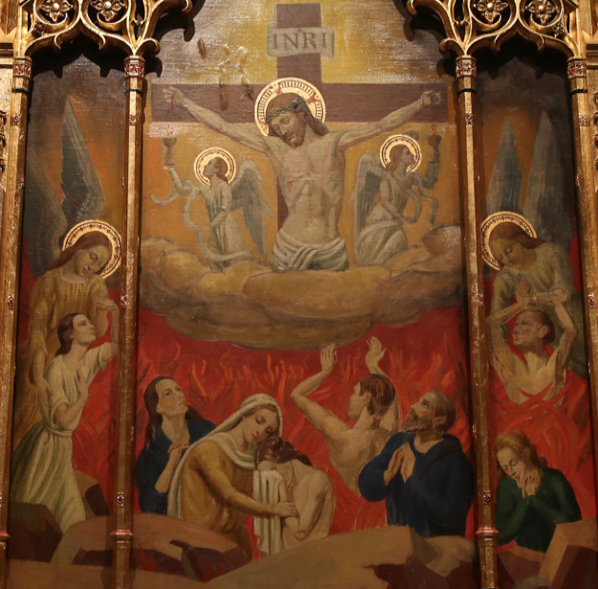 Eternal rest grant unto them, O Lord, and let the radiance of your light shine forever upon them (cf. 2 Es 2:35).
Eternal rest grant unto them, O Lord, and let the radiance of your light shine forever upon them (cf. 2 Es 2:35).
To you our praise is due in Zion, O God.
To you we pay our vows, you who hear our prayer; to you all flesh will come (Ps 64:2-3).
Requirements for Obtaining a Plenary Indulgence on All Souls Day (November 2 )
– Piously visit a church to pray for the faithful departed
– Say one “Our Father” and the “Creed” in the visit to the church
– Say one “Our Father” and one “Hail Mary” for the intentions of the Pope
– Worthily receive Holy Communion (ideally on the same day)
– Make a Sacramental Confession within a week of (before or after) All Souls Day
– that one be free from all attachment to sin, even venial sin.
Requirements for Obtaining a Plenary Indulgence from November 1 to 8
– Devoutly visit a cemetery and pray for the dead.
– Say one “Our Father” and one “Hail Mary” for the intentions of the Pope
– Worthily receive Holy Communion (ideally on the same day)
– Make a Sacramental Confession within a week of (before or after) All Souls Day
– that one be free from all attachment to sin, even venial sin.
The “technical” things on Indulgences (so that we don’t fall into error)…from the Handbook of Indulgences, Norms:
“1. An indulgence is the remission in the eyes of God of the temporal punishment due to sins whose culpable element has already been taken away. The Christian faithful who are rightly disposed and observe the definite, prescribed conditions gain this remission through the effective assistance of the Church, which, as the minister of redemption, authoritatively distributes and applies the treasury of the expiatory works of Christ and the Saints.”
“22. The prescribed work for gaining a plenary indulgence attached to a church or oratory is a devout visit there, which includes the recitation of the Lord’s Prayer and the Creed (Pater Noster and Credo), unless otherwise stated in a specific grant.”
“23. 1. Besides the exclusion of all attachment to sin, even venial sin, the requirements for gaining a Plenary Indulgence are the performance of the indulgenced work and fulfillment of three conditions: Sacramental Confession, Eucharistic Communion, and prayer for the Pope’s intentions.
- Several Plenary Indulgences may be gained on the basis of a single Sacramental Confession; only one may be gained, however, on the basis of a single Eucharistic Communion and prayer for the Pope’s intentions.
- The three conditions may be carried out several days preceding or following performance of the prescribed work. But it is more fitting that the Communion and the prayer for the Pope’s intentions take place on the day the work is performed.
- If a person is not fully disposed or if the prescribed work and the three mentioned conditions are not fulfilled, the Indulgence will only be partial …”
- The condition requiring prayer for the Pope’s intentions is satisfied by reciting once the Our Father and Hail Mary for his intentions (Pater Noster and Ave Maria); nevertheless all the faithful have the option of reciting any other prayer suited to their own piety and devotion.”
From the Handbook of Indulgences, Grants
- Visiting a Church or an Oratory on All Souls Day
A Plenary Indulgence, which is applicable only to the Souls in Purgatory is granted to the Christian faithful who devoutly visit a church or an oratory on (November 2nd,) All Souls Day.13. Visiting a cemetery
An indulgence is granted the Christian faithful who devoutly visit a cemetery and pray, if only mentally, for the dead, This indulgence is applicable only to the souls in purgatory. This indulgence is a plenary one from November 1 through November 8 and can be granted on each one of these days. On the other days of the year this indulgence is a partial one.
Trinity Sunday
In the Western Church, the Sunday following Pentecost is Trinity Sunday. As point of comparison the Byzantine Church today is the Sunday of All Saints.
There are plenty of things to say about the Holy Trinity but I think this hymn attributed to St. Jacob of Sarug found today in the Syriac Maronite at the Third Hour of Sunday, says all of what we believe.
Glory be to the Father Who chose the prophets and they foreshadowed His Only-Begotten Son. Worship be to the Son Whose Gospel the apostles proclaimed in the world. Thanks be to the Spirit Who strengthened the martyrs and they died in His hope, and may mercy be upon us sinners through their prayers.
Today, I am also reminded of the life and writings of Saint Elizabeth of the Trinity and Blessed Itala Mela (Maria of the Trinity). The first a Discalced Carmelite and the second a Benedictine Oblate. Both devoted their lives to make this piece of dogma, this beautiful mystery, known and lived.
Blessed Itala said, “The will of Christ, which I feel in the depths of my soul, is to drag me, to immerse myself with Himself in the abysses of the Holy Trinity … It is useless to look for other ways: this is what He has chosen for my sanctification.”
